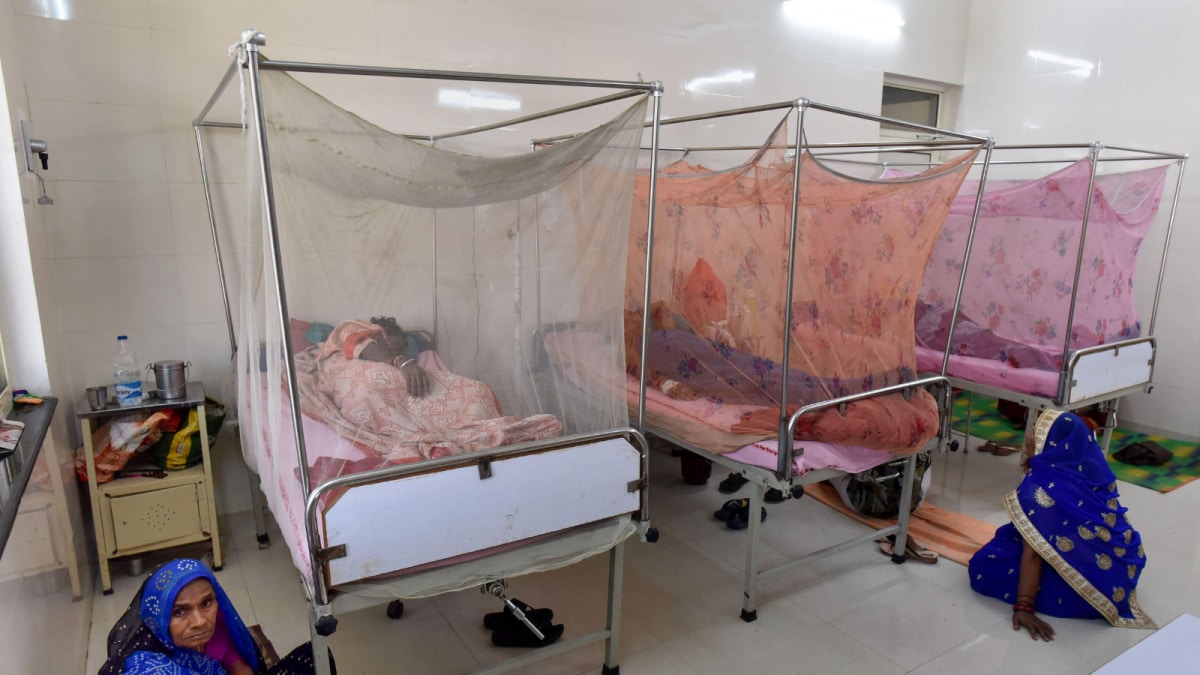Dengue vs Viral Fever: How To Tell The Difference? Doctor Explains Key Symptoms And Diagnosis

Last Updated:August 05, 2025, 17:57 IST
Dr Sonia Rawat said that viral fever usually subsides with paracetamol, but dengue may need hospital care if symptoms include vomiting, rashes, bleeding, or severe weakness

Dengue may require hospitalisation, especially if symptoms include vomiting, abdominal pain, weakness, bleeding, or skin rashes with high fever. (Representative/PTI)
As monsoon rains sweep across the country, hospitals are seeing a surge in fever cases, but telling one from the other is proving tricky. The spike in viral and dengue fevers has created confusion among patients due to their overlapping symptoms, often delaying timely diagnosis and treatment.
Speaking to News18, Dr Sonia Rawat, Director of Preventive Health and Wellness at Sir Ganga Ram Hospital, New Delhi, explains how to differentiate between the two.
Dr Rawat stated that dengue fever is caused by the Aedes aegypti mosquito, while viral fever stems from common viruses such as rhinovirus and influenza virus, which can spread through sneezing, coughing, or contact with infected surfaces.
Although both are viral infections, they are transmitted by different viruses, with the dengue virus being notably more dangerous. Timely treatment of dengue is crucial, as delays can be fatal, she said.
Dr Rawat stated that dengue typically causes sudden and very high fever, in contrast to the gradual increase observed in viral fever. Viral fever generally resolves within 2-3 days, but dengue can cause the patient’s condition to worsen over time. Dengue is characterised by severe body pain, often referred to as break bone fever due to intense pain in bones and muscles. Other symptoms include pain behind the eyes, joint swelling, and weakness. Viral fever, on the other hand, usually presents with milder body pain, headaches, and sore throat.
A key indicator of dengue is the appearance of skin rashes, which are not common in viral fever. Individuals experiencing red rashes along with fever should seek medical advice promptly. To confirm dengue, tests such as the NS1 antigen test, dengue antibody test, and platelet count test are used. Dengue results in a rapid drop in platelets, whereas viral fever does not significantly affect blood reports, though there may be slight changes in white blood cells.
According to Dr Rawat, there is no specific antiviral medication for dengue; treatment is based on managing symptoms. Simple paracetamol is commonly prescribed for viral fever, which typically resolves quickly. However, dengue may require hospitalisation, especially if symptoms include vomiting, abdominal pain, weakness, bleeding, or skin rashes with high fever. Prompt diagnosis and treatment of dengue are vital to prevent severe complications. Persistent viral fever for more than 3-4 days also warrants medical testing.
view comments
Read More
[title_words_as_hashtags



